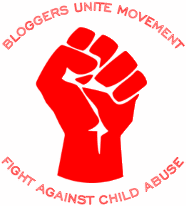It seems that every few years I have a trial of my faith; or lack of faith perhaps. There are somethings that I don't imagine I'd ever stop believing because of experiences that forged the beliefs so strongly. One such belief is that there is a God. Although, I believe there is a God, I also recognize that I could be wrong. I'm sure that seems very confusing but the definition of Faith in Hebrews 11:1 is: "Now faith is the substance of things hoped for, the evidence of things not seen." So, I don't think I am wrong to recognize that I don't know if there is a God even though I believe that there is.
Lately as I have gone through some personal difficulties, I have returned to thoughts about God that trouble me. Is he a loving God or is he a vengeful God? Is he really involved in our lives or does he just stand back and let things happen as they will? Is God a he or a she? Maybe God is both? Will I go to hell for entertaining so many questions about God?
Any one who recognizes their own weaknesses wants to believe in a loving and forgiving God. For such a God would love them despite their weaknesses. I fall into this category. I want to believe that God will forgive my doubts and understand my less than perfect life in light of my weaknesses. I want to believe that he/she will accept my life and the good that I'm able to do with out worrying so much about the rituals that I don't understand and therefore don't participate in.
It is in times of personal difficulties that I begin to wonder about this God of vengeance. Punishment for sin was something that was deeply ingrained as a child and so the idea that my difficulties are a punishment is always present. The fear of God's punishment kept me from doing many things. It didn't, however, keep my brothers from abusing me. I had a conversation recently with my mother in which I mentioned this abuse. I hadn't talked to her about it since I was 12 years old when I told her what one of my brothers was doing to me. She did confronted my brother with my accusation and he denied it. My brother was sent on his way while my mother gave me advice on what I should do to avoid the abuse. From then on, if I complained about something my brothers did, the response was "What did you do to provoke it?" So, I came to feel that the abuse was my fault. That I was the one who was sinning. It has taken many years and a couple of mental health professionals to help me move past the self-blame and -loathing that resulted from my mother's recriminations.
So recently, my mother was wondering why I am so adamant about the role of women in society and I remind her of the abuse I suffered as a child. Her response was to say that my brother who I accused so many years ago now has a loving wife and family and I need to learn to forgive him. On one hand, I imagine my mother was trying to tell me to let past hurts go. And I do agree that holding a grudge only hurts the person holding it. I feel that she was also telling me not to ruin my brother's life by exposing his past. There is no acknowledgement of how my life has been affected by my brother's actions. There is no understanding that this is more that just forgiving my brother. It is an ongoing process of healing a broken soul.
With all the many years that have passed and the counselors who have taught me how to cope, one statement from my mother brings me to tears and reminds me how lonely and afraid I was at 12 years old. It was at that time when I realized that I could not rely on anyone to protect me. Given how deeply these experiences have affected me, it is any wonder that I would want to improve the lot of all women? Is it surprising that I would want to do all that I can to stop abuse and end the cycle of misery?
Along with my anger regarding my mother's defense of my brother, there is anger at God. Why would he allow these things to continue when I prayed so sincerely for relief? Now, I have been taught that God must allow everyone their agency to chose good or evil. So, maybe God did not stop the abuse because my brother had to freely choose good over evil. My brother obviously failed that test. So God may not force an individual to chose good, but shouldn't a church supposedly lead and directed by God be setup in such a fashion that it encourages and trains it's members to make good choices?
The church to which I belong is a very patriarchal church. The men hold the priesthood and women are taught to be subject to them. There are scriptures and such that emphasize that men are not to abuse their priesthood power but there always seem to be other scriptures that can be used as justification when a man does abuse his power. It is my personal belief that this inequality promotes the maltreatment of women. Now, I recognize that the majority of men in my church love their wives and treat them kindly. The older men although kind to their wives still hold onto the "head of the household" status and expect to be obeyed by their wives. The younger men seem to be embracing the partnership model of marriage more and more. However, there are still rules that must not be broken. Women are not to work outside the home unless there are extenuating circumstances. Women and girls don't hold the priesthood.
Holding the priesthood is such a privilege that women will say how grateful they are to have the priesthood in their home because they have a husband or son who holds the priesthood. Since a daughter can not hold the priesthood, she is relegated to a position of second-best. A parent may express their gratitude for having a daughter but it isn't the same because she can not bring to the home the valued priesthood which a son could. When a daughter is seen as second-best whether conciously or sub-conciously, it will happen that the son's welfare will be given a higher priority to the daughter. This is where the maltreatment comes in. It may be sub-concious but it is there and results in men who feel justified in their abuse of women and women who don't have the self esteem to know they deserve better.
Would a loving God intentionally place such a division between His sons and daughters? In Acts 10:34 Peter says "Of a truth I perceive that God is no respecter of persons" If this is true that God loves His daughters the same as His sons and it was never His intention to exclude His daughters or make them feel second-best.
In this trial of faith, I wonder how I can stay true to the beliefs I hold dear and still remain a member of a church that seems at odds to those beliefs. An easy solution would be to find another church that I can attend. I have actually attended other churches and in each one I have found this or that belief that doesn't sit well with me. Another thought is to stop attending church and worship in my own way at home. I happen to be a very social person and I like the community that I am part of when I attend church. Actually, there are a number of women in my congregation who share my beliefs about women. We are the closeted feminists hiding amongst the staunch patriarchal believers. Bigger than that is that fact that despite my concerns and lack of faith, I believe that the gospel as taught by Jesus Christ is true. I believe that the Book of Mormon is true. It's all the other stuff that is added on that I question and doubt. What of it is true and what is mankind's own creation to supply divine justification for actions and beliefs?
I sympathize with the father who brought his child to be healed by Jesus ...
"Jesus said unto him, If thou canst believe, all things are possible to him that believeth. And straightway the father of the child cried out, and said with tears, Lord, I believe; help thou mine unbelief." (Mark 9:23-24)
Sunday, January 11, 2009
Subscribe to:
Comments (Atom)




